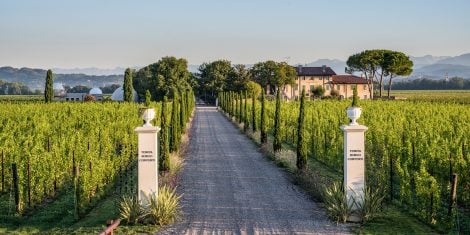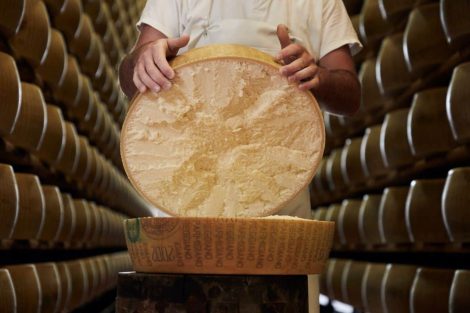Alto Adige is one of Italy’s most renowned wine regions, where ideal soils, exposures, and a variety of grape varieties come together with the expertise of a large number of winemakers who, over the decades, have specialised and adapted their skills to this complex viticultural puzzle. The high quality of production makes it increasingly difficult to stand out, and even in the Gambero Rosso Vini d'Italia guide, true newcomers are few and far between. However, this year, the Pfitscher family has earned a spot in the spotlight, marking the culmination of a journey that began in the second half of the 19th century. The award-winning wine that earned them the prestigious Tre Bicchieri is their 2021 Pinot Nero Matan Riserva (among the best wines of Alto Adige).
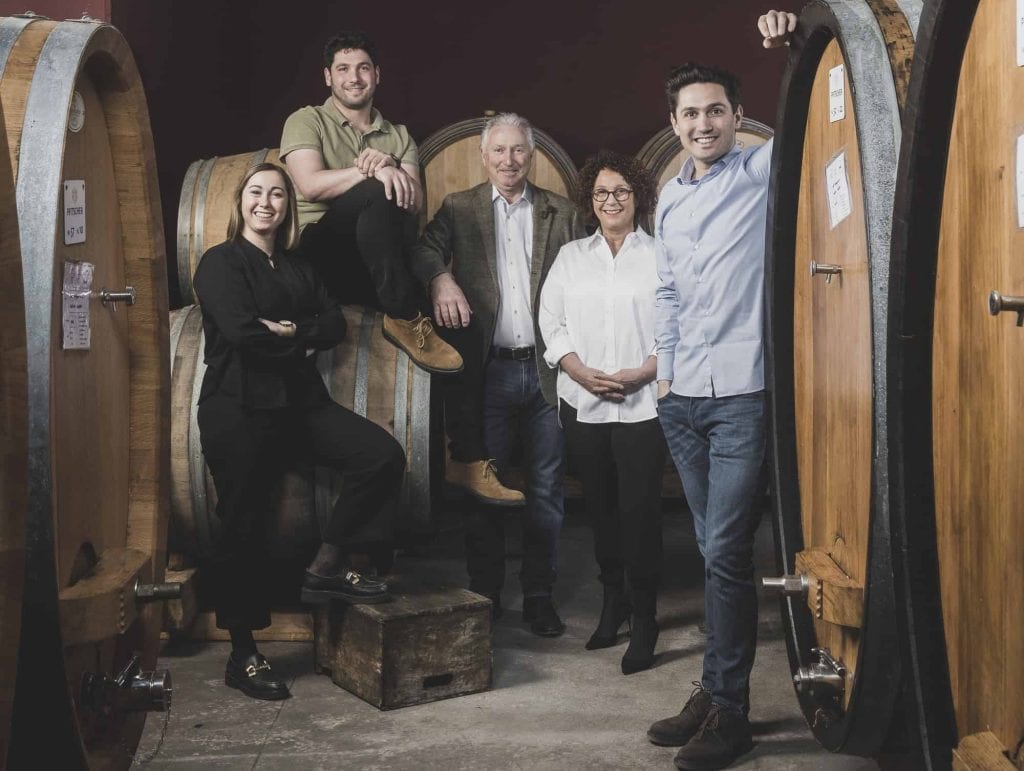
Mountain viticulture
What was once an artisanal business saw its first major shift in 2011, when production was moved to the new winery in the small village of Montagna, becoming the first Italian establishment to be certified by CasaClima Wine. This change made all processes more streamlined, with spaces allowing for more relaxed maturation times and the opportunity to focus solely on the quality of the wines. The next step came a few years later, in 2016, when Hannes, fresh from a degree in oenology and important experiences abroad, joined father Klaus, while Daniel began to take care of the commercial side.
The heart of the winery lies in its 25 hectares of vineyards, mainly in the southern part of Alto Adige, with vines planted between 500 and 900 meters above sea level, where each variety is placed in its optimal zone. For example, Gewürztraminer is grown at lower altitudes, while the Sauvignon Blanc destined for Mathias matures between porphyry and limestone in Fiè allo Sciliar.
The high-altitude vineyards allow the grapes to ripen with only minimal impact from climate change. As Daniel notes, "some areas like Glen, at 700 metres, were considered too cool for high-quality viticulture a few decades ago. Now, they’re one of the prime locations for Pinot Noir, where the grapes ripen while maintaining excellent aromatic freshness and vibrant taste."
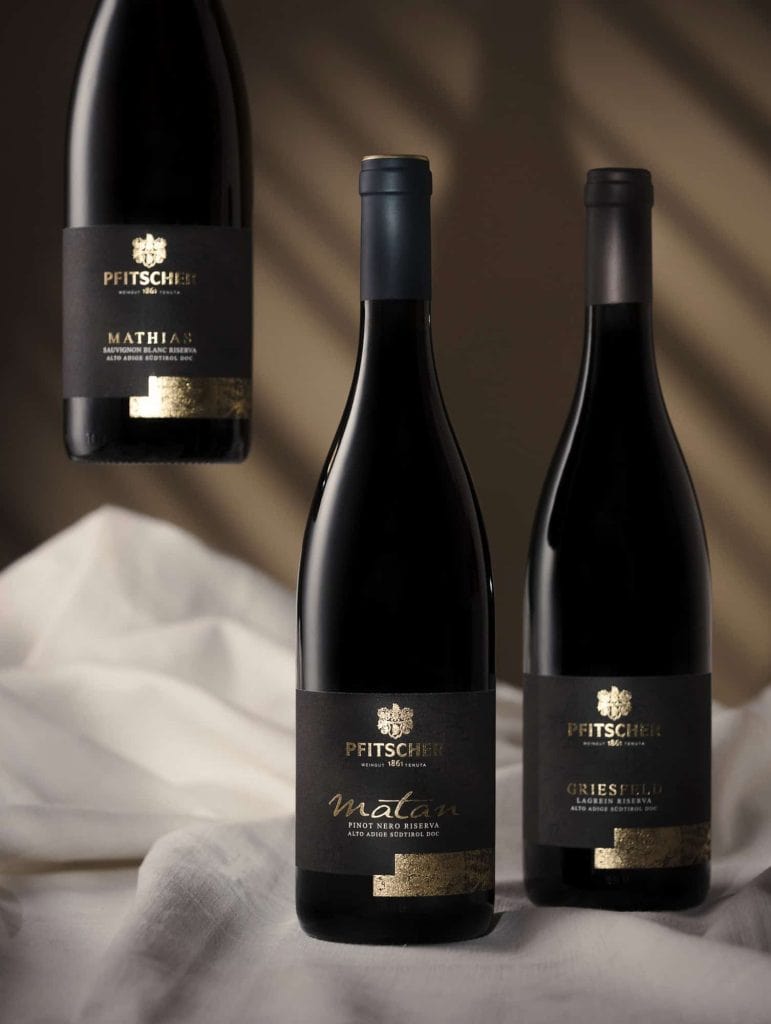
The high-altitude Pinot Noir that won Tre Bicchieri
In Glen, Klaus planted the first Pinot Noir vines in the late 1970s, and today, they have reached their peak in terms of quality expression. It’s from these vines that the Matan Pinot Noir is produced, a wine with great character that has earned the highest accolade from the Vini d'Italia guide this year. Its aromas aren’t immediately forthcoming but are unveiled gradually, much like the journey up a mountain path. Wild fruit notes are nestled among earthy and forest floor nuances, with oak accents remaining subtle yet helping to define the wine’s structure. On the palate, the wine unfolds energetically, balanced by a solid acidic backbone that lengthens and stretches the sip. The savoury finish, with smoky undertones, rounds off this highly enjoyable experience.
The organic shift
A key factor in the winery’s success has been its vineyard management choices, which have led to slower ripening and better-balanced fruit. Today, leaf removal is done only in cooler exposures, cover crops are used between the rows, and even when grapes reach full maturity, pH levels are lower than in the past. The next big change is already underway with the winery’s transition to organic farming. Although a portion of the vineyards has been farmed organically for years, the entire estate is now being converted, with certification expected after a couple of harvests.
Pfitscher - via Dolomiti, 17 - 39040 Montagna (Bz)

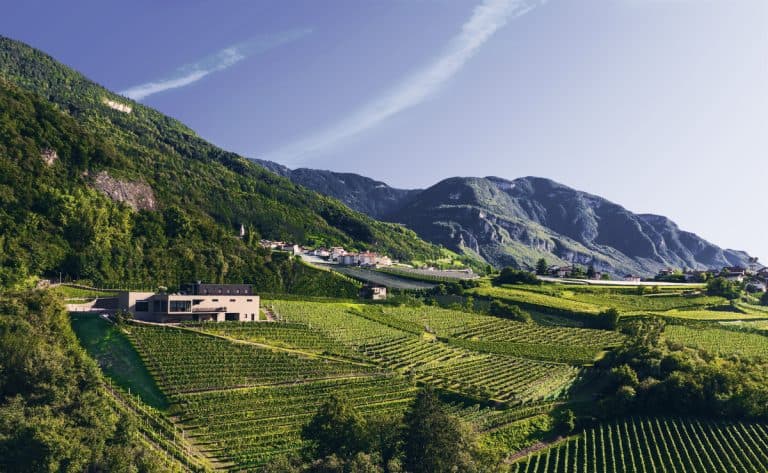
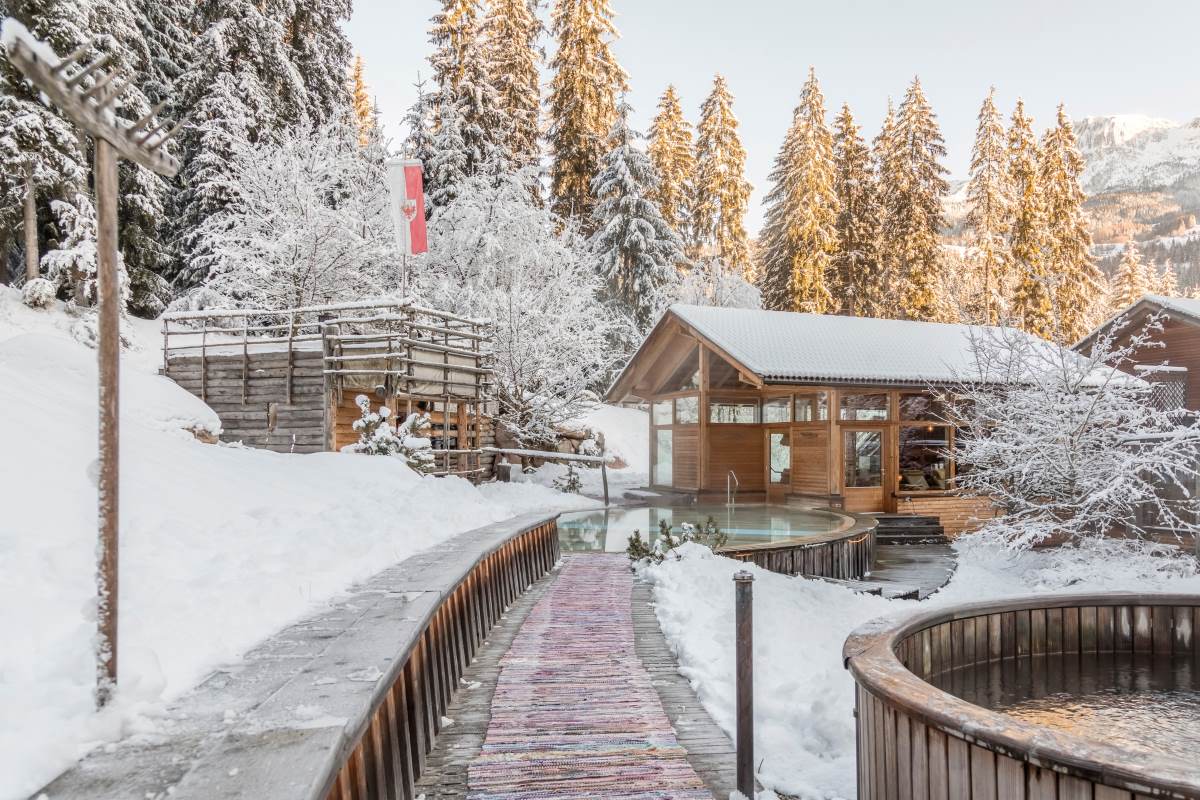 The alpine hotel where you can enjoy outstanding mountain cuisine
The alpine hotel where you can enjoy outstanding mountain cuisine Io Saturnalia! How to celebrate the festive season like an Ancient Roman
Io Saturnalia! How to celebrate the festive season like an Ancient Roman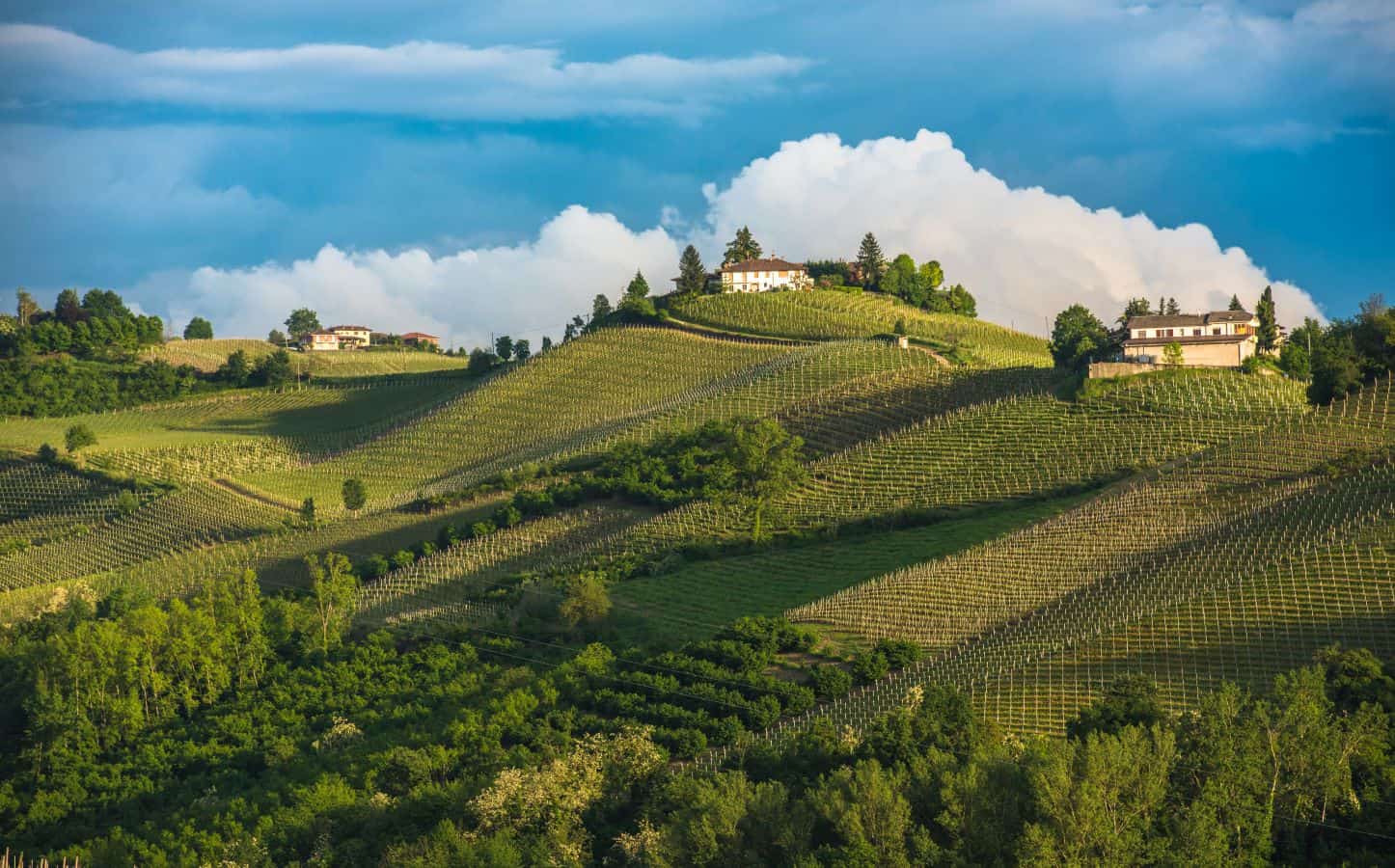 The UNESCO effect: tourism is growing, but there is a risk of losing identity
The UNESCO effect: tourism is growing, but there is a risk of losing identity The perfect pairing? Wine and books
The perfect pairing? Wine and books 2025 was the year of Trump's tariffs – will 2026 be better for Italian wine in the US?
2025 was the year of Trump's tariffs – will 2026 be better for Italian wine in the US?

